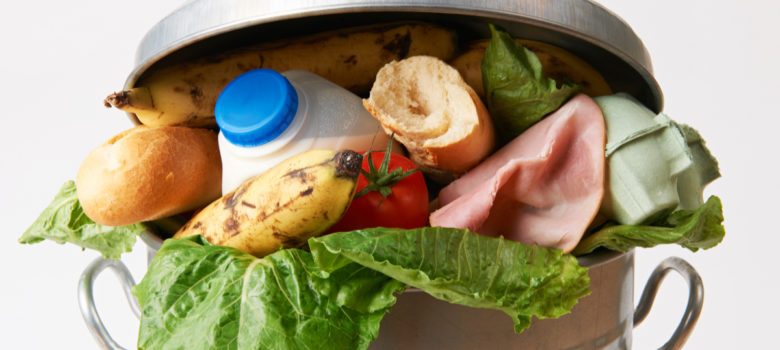
The basics of reducing food waste
Reducing food wastage brings several key benefits, including saving money, reduced environmental impact and energy and resource conservation.
In the UK, food wastage is a huge problem and sadly the issue seems to be growing year on year. In the UK alone, 7.3 million tonnes of household food is wasted annually, which is valued at approximately £13 billion.
But think of how many resources could have been saved if this food had not been produced in the first place – from growing crops, raising livestock, manufacturing, transport – all of these processes consume resources and energy.
The good news is that reducing food waste is something that is relatively easy to acheive on a individual basis, although getting the whole population to do that is somewhat harder!
Why do we need to start reducing food waste?
So where does the 7.3 million tonnes of wood waste end up? Well people seem to assume that the food they waste magically disappears when they throw it away, however while some of it does get ‘recylced’ actually much of it does the exact opposite; the food waste of the UK ends up in landfills, and it stays in that same landfill for however long it takes to decompose.
The good news is that when the food is put into landfills, it is strategically layered so that the food is able decompose in the most efficient manner. The decomposition of different food waste can take anywhere from a couple of days to a few decades, so it is important that decompostion is optimised. The problem with decomposition is that methane gets released throughout the process and this is a greenhouse gas.
This release of methane into the air is contributing to the effect of Climate Change where greenhouse gases including methane, carbon dioxide and nitrus oxide, cause heat to become trapped in the earth’s atmosphere. Methane is also known to be one of the worst greenhouse gases due to heating the earth’s atmosphere at a rate 25 times faster than carbon monoxide – so food waste has a genuine impact on Climate Change.
As mentioned earlier though, if we managed to avoid food waste nationally (and globally), we would save huge amount of resources. At present, we have to produce far more food than is actually eaten, just based on the fact a large proportion is wasted, but imagine if the amount of food produced was only slightly higher than the amount of food consumed then there would be massive assoicated savings. Not only would you need less space to grow the food (be it animal of crop), but you would need less water, less feed (if rearing livestock) and less fertiliser to produce the food. You wouldn’t need to transport this additional food around the world (it is pretty shocking to walk around the supermarket and see where some of the produce was imported from). Essentailly the resources that we saved could be used for other things or for future generations.
By reducing food waste, it will not only benefit the environment and help reduce resource consumption – it will also help you as an individual. The single largest producer of the UK’s food waste is domestic households. Wasted food in the UK is estimated to cost around £250-£400 per year. This cost includes both buying the food from supermarkets and the collection and disposal of the food waste which is paid in the form of council tax – if you waste less food, you have more money in your pocket!
We’ve all filled up the food bin until it doesn’t shut anymore, and then done the very same thing the next week (even I had this issue over Christmas…) Some households waste food so excessively that they decide to invest in multiple food bins, which generally costs more, and is completely unnecessary when these households could think about reducing their food waste instead.
By introducing small changes to the ways you handle, and consume food, you could notice a big difference within your home.
Ways to Start Reducing Food Waste
There are some very simple and easy ways to reduce food waste in your home, which leaves no excuse to not start reducing your own food waste! One of the easiest ways to make sure food doesn’t go past its use by date is to know how to store the produce. Below are some useful things to know about re-heating, re-using and recipes!
- Most types of raw meat can be stored in the freezer – larger cuts of meat can be frozen for up to 6 months; smaller cuts can be frozen for up to 4 months; and minced meats can be frozen for up to 3 months. This is a great way to reduce the waste of meat that you might have bought in excess of or maybe you treated yourself to a meal out instead of cooking, just make sure to fully defrost when you are ready to cook!
- Any leftovers of cooked meals can be eaten the following days. Pasta and rice dishes, cooked meats and seafood, soups, food containing eggs, cooked vegetables, etc – these can all be kept refrigerated for 3-4 days after they have been cooked, and if you don’t consume them within 3-4 days they can then be frozen for even longer!
- Think about how you could alternatively use foods you are throwing away. Use the leftover salad from your weekend BBQ in your sandwiches the next day, or share the cake you bake with your neighbours. Not everything deserves to be put in the bin!
- Start composting leftover food such as vegetable peelings, fruit peelings, teabags and coffee grounds, and dry cat or dog food. A compost bin is designed to gradually break down the food put in so that you can use it as soil and nutrients for your garden.
- Get creative with your everyday cooking! There are so many recipes out there that include the use of leftovers, or food that is going out of date! Have you got bananas that are turning brown? Make banana bread! Use up any eggs by making a quiche, which will use up vegetables and meats too!
- Make sure to use sealed containers and cover any open foods to avoid bacteria growing. Labelling these containers is also a good idea, so you can visibly see what foods you have to use up. A lot of households like to add the use by date to these labels as well to be sure nothing goes uneaten.
What will happen if we don’t start reducing food waste?
The UK Government have done a huge amount to push the UK to be greener and combat Climate Change, including increasing the energy efficiency of homes and installing more renewable energy however in order to tackle Climate Change completely, we need to target every single contributing factor – so reducing food waste is actually incredibly important.
In order to solve the food wastage issue as a whole, the UK needs everyone’s input including yours!












No Comments yet! Be the first one.